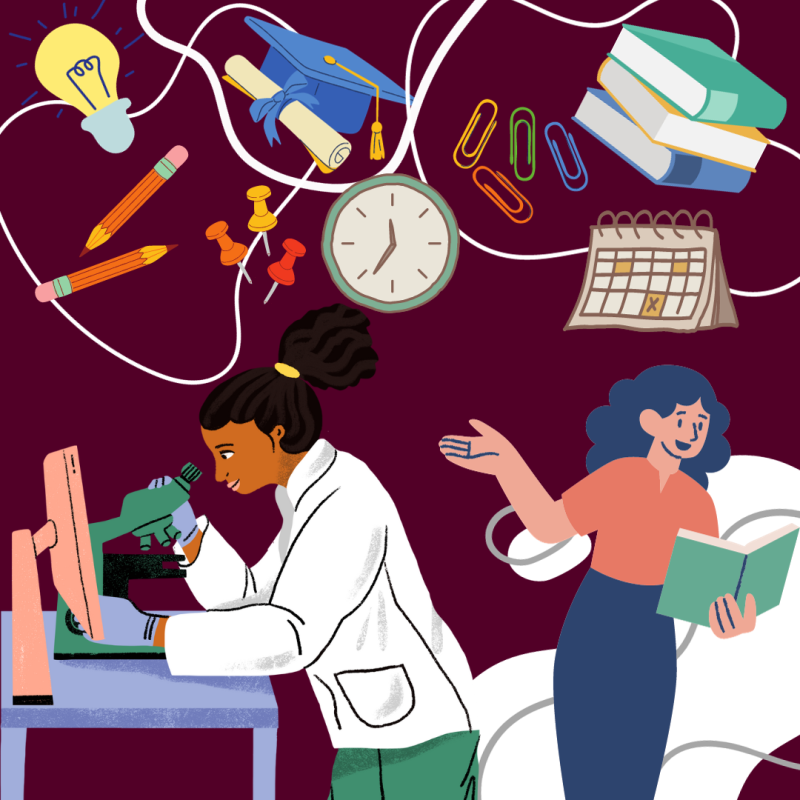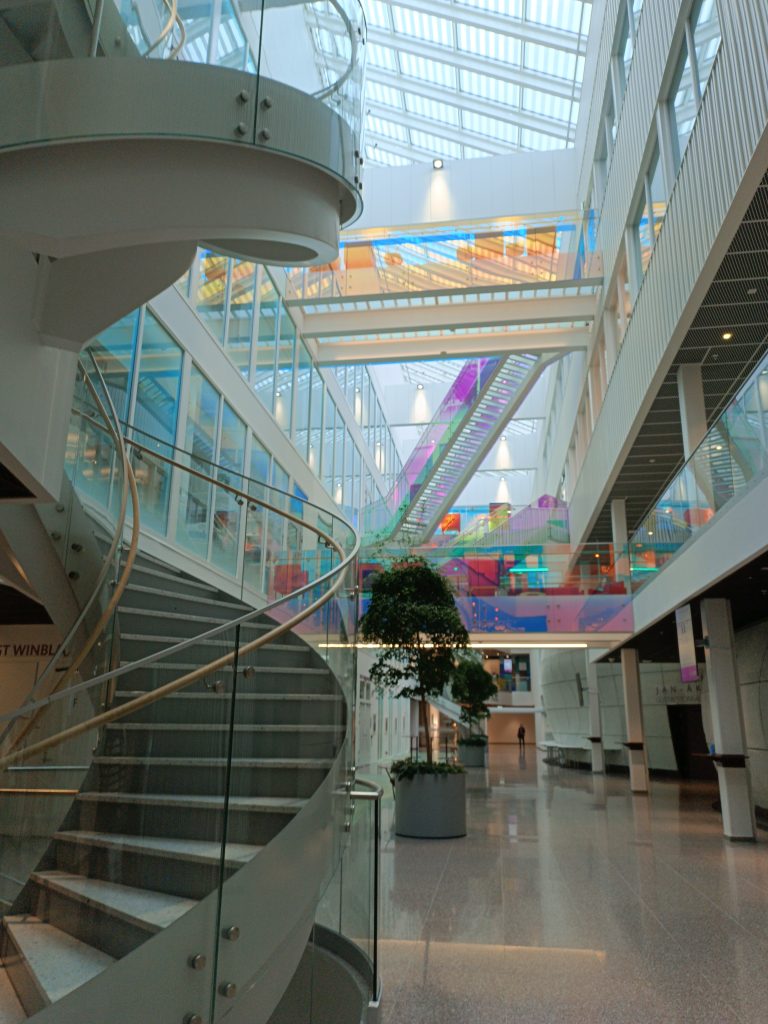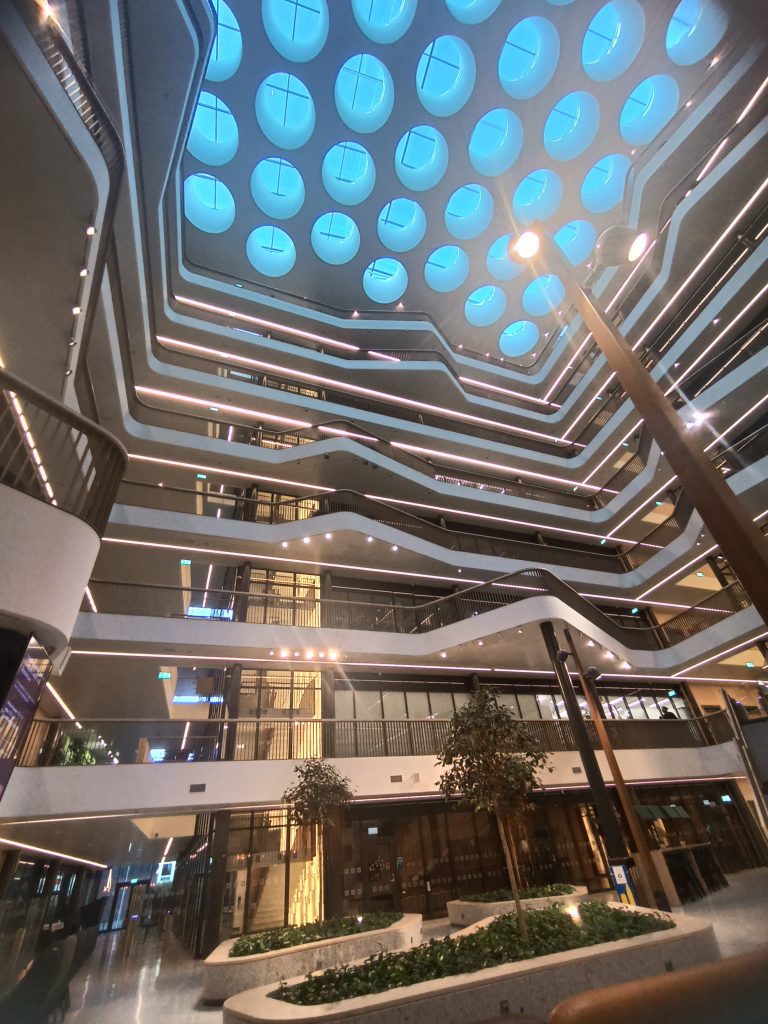
A taste of KI: the academic environment
As a digital ambassador and a second year student in the master’s programme in Biomedicine at Karolinska Institutet, one of the most common questions I get asked is regarding the academic atmosphere here. There was a bit of a culture shock I had to navigate at the beginning as an international student, but having adapted to the general environment for over a year now, I think I am at least slightly qualified to present you with an overview.
The classrooms
My class (as is the case with all global programmes at KI) is very diverse, with people from all over the globe who share a panache of being biology nerds (and I say this with all the love in my heart). Just like the students at KI’s global programmes, the lecturers and professors also hail from diverse backgrounds. Lectures and their contents may vary from one course to another, but a running theme regardless of that is the fact that the lecturers/presenters are often prominent researchers and professionals in their respective fields who are passionate about sharing their knowledge and expertise- especially to young and budding scientists. “There is no such thing as a stupid question” is taken very seriously and any doubts or questions students have are received and answered with equal enthusiasm. Moreover, most lecturers and professors are open to student correspondence and often encourage students to contact them via e-mail in case they have further queries.
Self studies are often part of the course schedule and many final examinations are a culmination of group work done over the duration of the course. Evaluators often also give feedback, comments, and constructive criticism to students to help them improve and to boost their morale as well.

The laboratories
The master’s programme in Biomedicine is very hands-on and laboratory intensive. What this means is that the programme is designed in a way that ensures maximum laboratory exposure to students so that we can get familiarised with useful techniques, and also perhaps make a more informed decision about our field(s) of interest.
Supervisors and PIs in labs are often extremely helpful and supportive. The “there are no stupid questions” theme runs rampant for most research groups, since the ultimate goal is for the students to gain as much knowledge as they can. So, if you are unfamiliar with the kind of research being conducted by a research group you will be working with- just ask! This shows that you are willing to learn and will help you build a strong knowledge base if your basics are clear. Moreover, it is safe to operate on the assumption that any person working in the lab is a giant nerd for their field of choice, so by asking them questions about that specific field will not inconvenience them. They are happy to share their knowledge.
And everything in between
Outside of labs and classrooms, there is always a place at KI for inquisitive minds with countless seminars, guest lectures, and workshops being conducted on an almost daily basis. Students are often found studying all over the campus in between class hours, or doing interesting research in the labs. Karolinska Institutet also boasts of state of the art research facilities and labs that conduct excellent research in a plethora of different fields. This translates to- if you have a particular area of interest within the life sciences/health sciences, there is probably a lab here that conducts research in it.
Collaborative work is one of the hallmarks of studying in Sweden, so like I said, many courses base their evaluations on group work. This gives you the opportunity to learn and develop your teamwork skills and adjust to different teams with different people and different topics to focus on.
Coming from a non-EU country, the lack of strict formalities or hierarchy in most academic settings was a giant culture shock for me. On one hand, it was refreshing not having to walk on eggshells around my PI, but on the other, everytime I addressed them with their first name I felt an Indian ancestor give up on me. Ultimately, the academic environment at KI is one that ended up suiting me, so I think I can deal with the calling-my-PI-by-their-first-name thing eventually.

Do keep in mind that this blog is based on experiences I have had, and is hence, rather subjective. For more of a deep dive into the academic scene at KI, feel free to follow this link. As always, thank you for reading and I hope this was helpful. If you have any questions, you know where to find me.

Naomi- Biomedicine (MSc)
My name is Naomi, and I am from India. I am a master’s student in Biomedicine. I have always been drawn towards research and knew early on that a career built around it was the one for me. So as a result, here I am! I enjoy spending time with my friends and exploring the city with them (though the introvert in me also loves some alone time). I hope I can be of some help with my blogs!

1 comments